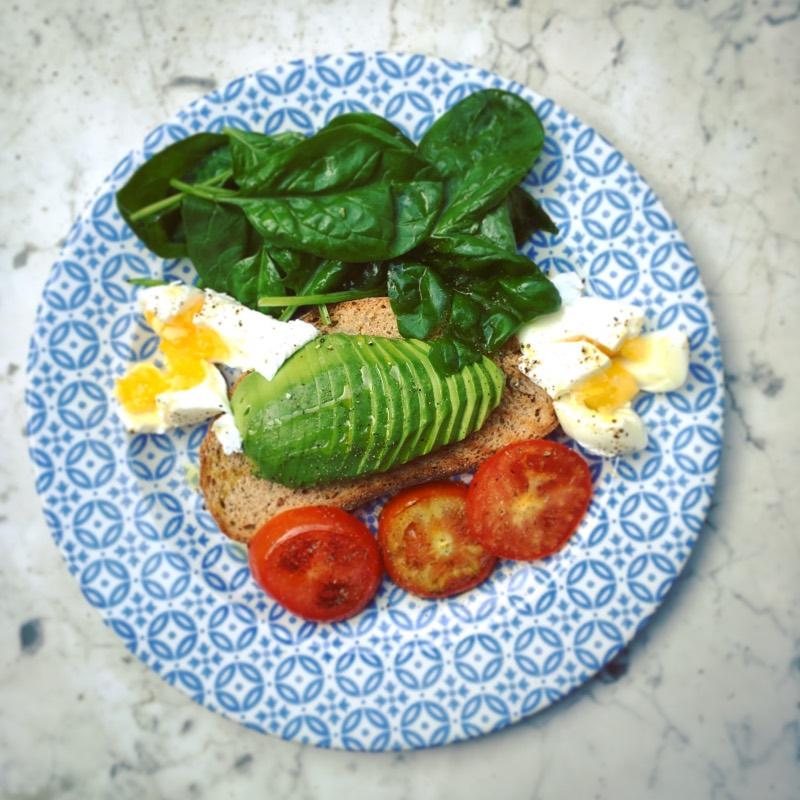8 Tips for Fueling Your Runs
Fueling your runs takes some time to get right for new endurance runners. The good news is that there is a ton of research that has been done over the years to help you out. This isn’t a highly scientific article about how your body metabolizes each macronutrient. Rather, this is a straightforward post about the most common, best-practice method, of fueling runners. These practices have helped people make the most of race day consistently over the years. There simply is no magic pill to fuel the human body. But these tips will help take advantage of what works by going back to the basics.
This is also not an article about how to eat a healthy, balanced diet. This is strictly about fueling your body before a run. Generally speaking, a well balanced diet including lean protein, complex carbohydrates and healthy fats is desirable. But that is not the focus of this particular post. This is written for those runners wondering what to eat before their run. That is wether it is a 5k race, their training session, or their ultra-marathon. You get the picture.
The 3 Macronutrients (Macros)
Carbohydrates (Carbs)
Carbs are sugars and starches that are in your common foods. These are broken down again into simple carbohydrates and complex carbohydrates. Each of these play their role in the runner’s diet. Simple carbs are broken down into sugars by the body quickly. The body can make use of this energy on short notice. Foods that are considered simple carbs include, most fruits and vegetables, fruit juice, candy (sweets), white bread, white rice, jam, and the runner’s favorite, gels. The list these days is vast, but this should give a good idea.
Complex Carbohydrates take the body a little longer to break down and generally contain a higher volume of fiber. These are usually considered a better part of a healthy diet, and they generally are. However, for the runner, they play a different role than the simple carbs.
Protein
Protein is another macro found in food and is essential in building and maintaining muscle. There’s no wonder bodybuilders have the reputation for loving protein. Lean protein is probably the most undervalued macro in the running world. Most of us neglect to focus on taking in enough protein relative to the amount of abuse we put our bodies through. When we eat protein is important, as you will see. Examples of protein sources include meat and poultry, fish, eggs, pulses, and dairy.
Fats
Fats are the third macronutrient in the trio. It consists of a few different types of fats, but for runners, we will focus on healthy monounsaturated and polyunsaturated fats. Fats help the body absorb some essential vitamins and minerals as well as increasing the production of growth hormone. This assists in muscle production and maintenance.
Fuelling Your Runs
So how do we fuel our runs? Well, it all depends on the run. Are you racing a 5k? Are you running a marathon? An ultra? It makes a difference, but the principles of fuelling remain the same. Would I eat a breakfast of eggs and bacon before a marathon? No, I would eat porridge and brown bread toast about 3 hours before the start? Absolutely. Would I eat porridge and brown bread toast before a 10k? No, I might not eat anything. Here are 5 tips for how to fuel your runs.
- Generally speaking, if you maintain a fairly healthy, balanced diet consisting of the three macros, you will be starting from a strong position. Your body will store roughly an hours worth of fuel in your muscles and liver. This means that at any given point in time your body will have access to fuel for up to about an hour of activity. For me, I will generally race a 5k in a fasted state. If it’s a morning race, I will usually only have water and coffee before the race. This ensures that I don’t have excess food in my stomach with the potential to cause a stitch or cramp. If it is an evening 5k, I won’t eat after lunch time.
- Fats can be used for fuelling long runs. Fat stores will be used for slow, low-intensity runs rather than carbs after about an hour. As a matter of fact, many ultra runners will primarily use this method. Fasted long, slow runs are a good method of training for distance running, but take them on with caution. Make sure you test your body out with shorter, fasted runs first. Also, make sure to drink water during these runs.
- For longer races, an understanding of the different types of carbs is important in fuelling your runs. In order to take advantage of complex carbohydrates, you will need to consume these earlier before your race than simple carbs. So, for example, if you are racing a half marathon, you would want to consume a relatively sizeable meal of complex carbs 3-4 hours before the start. This gives your body enough time to convert the meal into sugars your body can use. The closer to the start of the race, the more simple carbs you would want to consume. That’s not to say you should continue to eat and fill your stomach with simple carbs after a large meal of complex carbs. Rather, I would suggest an either/or method, with a preference for an early meal of complex carbs. Then follow tip number 4.
- When racing longer distances, anything over 10k, you may want to consider fuelling on the course with simple carbs. This can take the form of gels, fruit, sweets, raisins, or something like that. Your body can make use of this fuel very quickly. The idea is to re-fuel your body before it needs it. Something small, light and easy to carry is ideal. The best thing to do here is to experiment with different options to find something your body can take without causing stomach distress. Not everyone can take all gels. Don’t get caught out on race day.
- Always stay hydrated. Keeping your body well hydrated will help in digestion no matter what fuelling method you are using. The best practice is to drink little and often. Stay topped up and drink before you are thirsty.
- After your run things change considerably. This is when you should be eating a well balanced meal consisting of all three macros. Protein is never really used to fuel a run, which is why meat, fish and eggs aren’t on my plate before a race. However, protein is essential in rebuilding your muscle tissue after a race or a hard session. Fats are essential in helping your body absorb proteins, vitamins and minerals after a hard session. Your body also needs to restore its energy stores in your muscles, which is why carbs are essential after a hard session. The best practice is to consume these macros as soon after your run as possible. Ideally within an hour after completion.
- Protein is perhaps the most undervalued macro from a runners perspective. It is also one of the most important. Without good protein intake, your body will find it difficult to adapt to your training and make the most of all the miles put in. Protein builds and maintains muscle. When you train hard, your body breaks down muscle tissue and protein builds it back up when you rest. This is the time to eat the steak and eggs, not before your race.
Conclusion
Hopefully this helps you to understand how to fuel your runs. If you have any questions or comments I’d love to hear them. Please let me know using the comment section below. And be sure to like and share if you found this useful.



